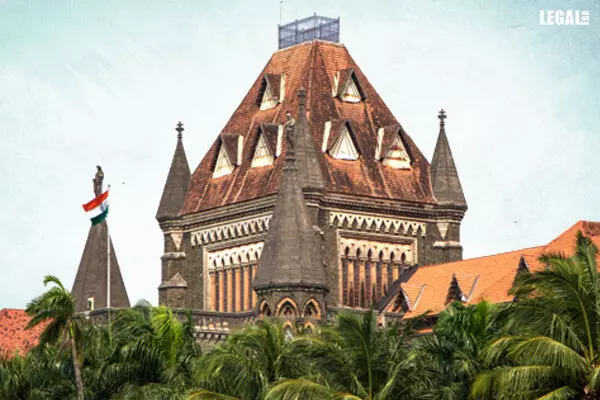- Home
- News
- Articles+
- Aerospace
- AI
- Agriculture
- Alternate Dispute Resolution
- Arbitration & Mediation
- Banking and Finance
- Bankruptcy
- Book Review
- Bribery & Corruption
- Commercial Litigation
- Competition Law
- Conference Reports
- Consumer Products
- Contract
- Corporate Governance
- Corporate Law
- Covid-19
- Cryptocurrency
- Cybersecurity
- Data Protection
- Defence
- Digital Economy
- E-commerce
- Employment Law
- Energy and Natural Resources
- Entertainment and Sports Law
- Environmental Law
- ESG
- FDI
- Food and Beverage
- Gaming
- Health Care
- IBC Diaries
- In Focus
- Inclusion & Diversity
- Insurance Law
- Intellectual Property
- International Law
- IP & Tech Era
- Know the Law
- Labour Laws
- Law & Policy and Regulation
- Litigation
- Litigation Funding
- Manufacturing
- Mergers & Acquisitions
- NFTs
- Privacy
- Private Equity
- Project Finance
- Real Estate
- Risk and Compliance
- Student Corner
- Take On Board
- Tax
- Technology Media and Telecom
- Tributes
- Viewpoint
- Zoom In
- Law Firms
- In-House
- Rankings
- E-Magazine
- Legal Era TV
- Events
- News
- Articles
- Aerospace
- AI
- Agriculture
- Alternate Dispute Resolution
- Arbitration & Mediation
- Banking and Finance
- Bankruptcy
- Book Review
- Bribery & Corruption
- Commercial Litigation
- Competition Law
- Conference Reports
- Consumer Products
- Contract
- Corporate Governance
- Corporate Law
- Covid-19
- Cryptocurrency
- Cybersecurity
- Data Protection
- Defence
- Digital Economy
- E-commerce
- Employment Law
- Energy and Natural Resources
- Entertainment and Sports Law
- Environmental Law
- ESG
- FDI
- Food and Beverage
- Gaming
- Health Care
- IBC Diaries
- In Focus
- Inclusion & Diversity
- Insurance Law
- Intellectual Property
- International Law
- IP & Tech Era
- Know the Law
- Labour Laws
- Law & Policy and Regulation
- Litigation
- Litigation Funding
- Manufacturing
- Mergers & Acquisitions
- NFTs
- Privacy
- Private Equity
- Project Finance
- Real Estate
- Risk and Compliance
- Student Corner
- Take On Board
- Tax
- Technology Media and Telecom
- Tributes
- Viewpoint
- Zoom In
- Law Firms
- In-House
- Rankings
- E-Magazine
- Legal Era TV
- Events
Bombay High Court Criticises Customs Commissioner's Inaction on RKZB International's Goods Release Request

Bombay High Court Criticises Customs Commissioner's Inaction on RKZB International's Goods Release Request
In a recent ruling, the Bombay High Court has decreed that Customs Commissioners must promptly and efficiently address provisional release appeals from importers, considering the precise details and context of each case. Furthermore, the Court has articulated its anticipation that Customs Officers will process provisional release petitions expeditiously and, in the event they cannot grant or adjudicate on the application, they should convey the reasons for such a decision to the importer.
The Court's judgment was delivered in a case involving RKZB International, a sole proprietorship entity, which had imported ball bearings. The Department had commenced an inquiry based on intelligence regarding the importation of these items. As part of the investigation, statements from specific individuals were recorded, and the goods in question were confiscated. Following this, a show-cause notice was served to the petitioner, asserting that they had undervalued the imported merchandise. In light of these developments, the petitioner had corresponded with the pertinent officer, petitioning for the provisional release of the goods.
The Division Bench comprising Justices G.S. Kulkarni and Jitendra Jain conveyed their astonishment at the Commissioner of Customs' methodology. They observed that despite the petitioner submitting representations over almost two years, the Commissioner of Customs had not addressed the petitioner's appeals for provisional release.
The Bench stressed that the Commissioner of Customs ought to have recognised that, in their role as a public official endowed with substantial authority under the Customs Act, they bore a responsibility to engage with private entities dealing with the department, particularly in matters where legal authority had been conferred upon them.
The Bench asserted that such conduct was not in line with the expectations of a public official. They ruled that in the current instance, the Commissioner of Customs had not only failed to acknowledge the petitioner's numerous petitions, despite possessing the authority to exercise discretion regarding the provisional release of goods or the imposition of conditions for such release but had also appeared to act in a manner that disregarded their powers and obligations.
Additionally, the Bench observed that despite the issuance of the show cause notice almost a year ago, there had been no progress or adjudication. The Bench was reluctant to permit a scenario in which the petitioner would face adverse consequences due to the Commissioner of Customs' lack of action on both fronts. It was determined that there was no legally valid rationale for refusing the petitioner provisional release under the stipulated conditions.
As a result, the Court held that this case merited the approval of the petitioner's plea for the provisional release of the goods.


